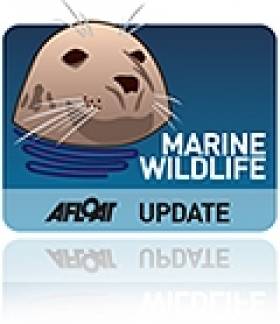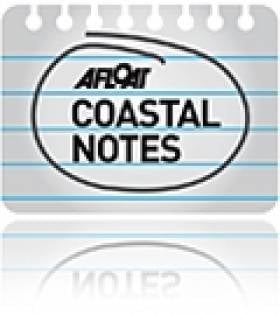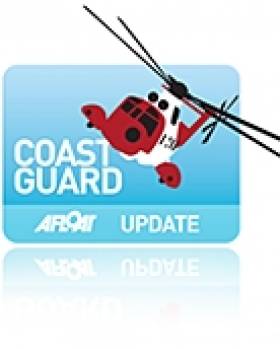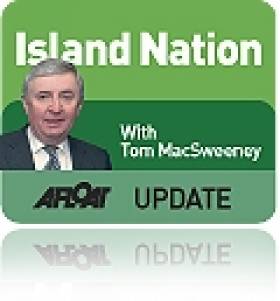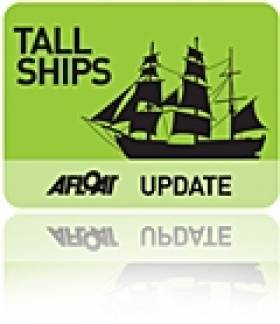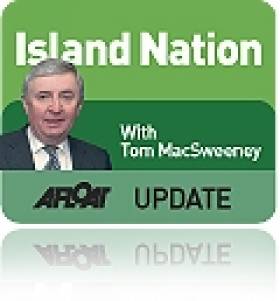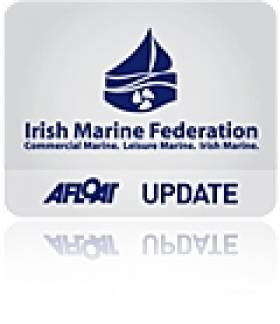Displaying items by tag: Government
Groups Concerned Over UK Govt Plans for Marine Conservation Zones
#MARINE WILDLIFE - Conservationists in the UK have voiced their concern that Westminster will enact fewer than a quarter of the proposed Marine Conservation Zones in British waters.
The Press Association reports that some 127 such zones - including parts of the Irish Sea - have been earmarked by regional conservation groups as areas requiring special environmental protection.
All 127 proposals were reviewed by an independent panel of scientists and government committees before they were to go on public consultation.
But it is now feared that a mere 23 of the total will get the go-ahead, due to a perceived lack of evidence to support the case for the rest.
"To only designate 23 marine conservation zones is equivalent to switching off the life support for our seas," commented Joan Edwards of the Wildlife Trusts.
The Press Association has more on the story HERE.
Campaigners Call on Govt to Back Aarhus Convention
Grassroots campaigners have called on the Government to ratify a UN convention on public access to decision-making on environmental issues.
According to The Irish Times, activists at the first All-Ireland Community Campaigns Gathering in Dublin recently claimed that coastal communities would have been “spared a decade of distress” if the Aarhus convention had been adopted into Irish law.
Ireland is one of just a handful of European countries yet to ratify the Aarhus convention, first adopted in 1998. Former Environment Minister John Gormley left office before fulfilling his promise to do so.
Mamie Bowen of the Cork Harbour Alliance for a Safe Environment (Chase) cited the approval of a foreshore licence for the Corrib gas pipeline, despite local concerns, as an example of the Government allowing private companies to "impose dangerous projects on communities.”
The common-cause gathering was attended by community activists from Cork, Derry, Donegal, Dublin, Kerry, Limerick, Mayo and Tyrone.
The Irish Times has more on the story HERE.
Marine Minister to Have Air-Sea Rescue Remit
Minister for the Marine Simon Coveney will have the remit for air and sea search and rescue services, it has emerged.
The Irish Times reports that the move is part of a promised consolidation of maritime functions under the new programme for Government.
Responsibilty for the Irish Coast Guard will however remain with Minister for Transport Leo Varadkar until an official transfer which is expected in the next few weeks.
Meanwhile, fellow Fine Gael TD and Minister of State for NewEra, Fergus O'Dowd, intends to push for a review of the State's €500m contract for search and rescue services with CHC Ireland.
O’Dowd said there were “significant questions to answer” over the deal signed by former Transport Minister Noel Dempsey last year.
The Irish Times has more on the story HERE.
Ports Must Not be Sold
Over 90 per cent of the nation's exports and imports move by sea. Our ports are the essential avenue, the doors to Ireland. They are the property of the nation and must work for the people, whose future has been destroyed by the greed of private interests. To suggest that recovery can be achieved by sale of these vital assets is a nonsense and damaging to the interests of the nation.
What is needed is a clear, definitive national ports policy in which the government sets down what the ports are to do for the nation. Their role should be identified clearly, their boards and managements told what they are expected to achieve on behalf of the nation, with penalties for failure.
Fine Gael had committed in its election manifesto, to replacing the existing boards of all State Port companies and Harbour Commissioners within one year of entering government.
Fianna Fail and the Progressive Democrats in government had turned the port companies into semi-private entities, responsible for their own financial operations. While it was indicated that this would improve competitiveness and provide better and more cost-friendly services for users, who would be represented on the company boards, there are differing views about how effective this has been.
Competition is not necessarily always the harbinger of effective service or provision of choice. A small island nation with a limited number of primary ports could have a policy maximising effectiveness, delineating between primary and minor ports providing commercial services, supporting the fishing industry and leisure sectors. There must be containment of costs, efficiency of operation and the best services for exporters and importers. There should be investment where required and could even be provision for private investment. But the ownership should remain with the State on behalf of the people.
The ports are national resources, not to be sold off to private interests.
Those who drew up the recovery report which proposes the sale of the ports represented private interests and included are banking and speculative development interests. They echo, in regard to the ports, a similar proposal in the 'second coming' of Bord Snip Nua'. There are some aspects of their suggestions which merit further consideration, but it is regrettable that people at high levels of position in Ireland appear to not fully appreciate that the nation is a small island for whom the sea and its approaches are of vital importance.
Tall Order for Ireland
Sailing in Ireland could yet have a tall ship to replace the Asgard II and the Lord Rank. A meeting in Dublin in late March represents a major step forward in the process to put an Irish tall ship back on the high seas.
The open workshop, to be held on March 26th, will be facilitated by Dublin Port, and will include state interests, tourism interests, commercial port interests, youth organisations, maritime organisations and education groups, together with the former Lord Rank and Asgard II operators.
The catalyst for the initiative is a 'reference group' which represents a broad cross-section of interests, both North and South. Operating under the chairmanship of Lord Glentoran, and supported by Dr Gerard O'Hare, David Beattie and Enda O'Coineen, the group has also engaged a professional consulting firm to move the process along.
The initial focus is on the necessary organisation and rationale behind building a new vessel, while scientifically quantifying the benefits to build a plan and justification.
The view taken is that, while there may be no money available at this time, there is no excuse for not having a plan and the idea is to create ' joined-up' thinking. And while the government in the South placed the insurance money paid out on Asgard II back into general exchequer funds, the insurance payment on the Lord Rank was kept and ' ring-fenced' for this new initiative.
To date, there have been several meetings of the reference group. The planned workshop on the subject at Dublin Port March 26 is open and interested parties are invited to contribute. It will also bring together for the first time the leaders of Tallships in Dublin, Belfast, Waterford and Cork.
Ultimately Tall Ships is about youth training and development; without an active Tall Ship, it will be very difficult for Ireland to attract Tall Ship events. The new reference group will work to support the new Sail Training Ireland Association initiative, and link in with Sail Training International which runs Tall Ship events.
Following the Dublin workshop, Belfast Harbour Commissioners will host a working meeting of the group in early May to finalise a plan, present to stakeholders and create a roadmap forward.
"In addition to youth training, a working Tall Ship forms a brilliant ambassadorial role promoting tourism, enterprise and commercial interests," said Lord Glentoran. "It is something that we can all relate to and it has universal acceptance for youth training on an island of Ireland basis." Lord Glentoran has a long commitment to youth sail training and was Chairman of the organising committee that brought the Tall Ships to Belfast in 1991.
The reference group is seeking to engage with as many stakeholders as possible, and has pledged that the new vessel will be owned by the community in Ireland and the Irish Diaspora. The initial view is that the project clearly needs to be linked with the institutions of State - North and South - as are universities state agencies and ports, while at the same time having a strong private support network making for a mix of public and private funding, "We now have a brilliant opportunity to look around the world, establish best practice in the best kind of vessel, how to fund it and to quantify the benefits for each of the stakeholder group," said Enda O'Coineen, who has been instrumental in bringing the group together. In addition to being a former Coiste and Asgard Director, he is the founding Chairman of Let's Do It Global, which brought the Volvo Ocean Race to Galway and successfully raced the Green Dragon around the world.
O'Coineen added that a "world class solution" can be created and that its benefits can be financially quantified, which would allow supporters to make a compelling business case to divert and use existing funds in Tourism, Enterprise and Youth Training. "While there is no money available now to support the scale and professionalism needed, this is not an excuse not to have a plan and a vision," he added.
Since the loss of the Asgard II and Lord Rank, Ireland has been left with no sail training opportunities for young people and likewise for maritime development, enterprise and tourism. If nothing is done, future generations will suffer. The reference group believes that the solution is the construction of an Ireland - North and South - training vessel, fulfilling several roles with a common mission and resourced according to quantifiable benefits delivered to stakeholders. It is also open to the use of an existing vessel - a key component being suitability and the operations budget.
The proposed Tall Ship project will enhance skills and opportunities for young people across the island, regardless of background, class or education. It could be used to showcase Ireland as a brand at overseas events and it could also host international students who wish to come to the island of Ireland, as is the case with many of the International Tall Ships Programmes already running on a global scale which create a huge amount of tourism for their respective countries.
The reference group notes that the Tall Ships concept appeals to young and old alike as the romanticism behind the concept touches on history, social studies, legacy, family, travel, adventure and, most importantly, fun. Tall Ships allow people to dream. They do however have an underlying seriousness and the concept is grounded in methodology that has been tested and proven the world over.
An advertisement in March/April of Afloat magazine - out now - gives full detials of the 'Tall Ship for Ireland' Workshop
Should Ireland be represented at the Tall Ships Races at Waterford 2011 and Dublin 2012? We want your vote on our Facebook Poll HERE.
Looking for further reading on Tall Ships in Ireland? Click the links below:
Click this link to read all our Tall Ships Stories on one handy page
Previewing Ireland's Tall Ships 2011 Season
Marine is Back
It is a reminder which I hope that the media in general will note and that his tile of Marine will be used as often as agriculture is. The general media has been notorious, in my view, for disregarding the marine sector unless there is disaster, emergency or controversy involved.
The return of the title 'Marine' to a Government Department is, to put it bluntly, a kick-in-the-ass which civil servants needed. It was a betrayal of this island nation's heritage when those in charge of the former Department of Transport held a meeting which decided to remove the title marine from the Department's name, even though the then Minister had been assigned the role of Minister for Transport and Marine. The man in charge of that Department, Noel Dempsey, did not demonstrate a lot of interest in the marine, being more noted for trying to shut down the coastal radio stations at Valentia and Malin, where he was beaten off by public opposition, which also happened when he tried to remove 24-hour rescue helicopter service in the south-east and for his introduction of laws which criminalised fishermen.
Hopefully, the restoration of 'Marine' to a Department's name will be the harbinger of better things for the marine sphere.
I have heard some disappointment expressed that the marine is not a department on its own, but what the Fine Gael and subsequently Coalition Programme for Government agreed by Enda Kenny and Eamon Gilmore said was: "Marine responsibilities will be merged under one Department, for better co-ordination in policy delivery."
They have been, though some of the finer detail remains to be seen, such as will the ports be moved away from Transport, to where port companies and commercial interests originally campaigned to have them moved? And how will the split of marine tourism work between Agriculture and Marine and the separate tourism department? A similar issue may arise in regard to sailing and sport, but it seems to me a positive step that the disregard which Fianna Fáil and the Greens showed for the marine sector is being changed.
It was also right to end a separate department for defence. With a small army and navy, smaller than the marine sector, it was nonsense that it should have been a department of its own.
Let us therefore, hope for the future and take a positive view of the change as being for the better.
Simon Coveney Appointed Marine Minister
Cork sailor Simon Coveney (38) has been appointed as Minister of Agriculture, Food and Marine in the new cabinet of the Fine Gael/Labour Government formed yesterday.
The announcement has been welcomed by various marine interests pleased to see Marine back at the cabinet for the first time since the Department was dismantled by Fianna Fail's Bertie Ahern in 2002.
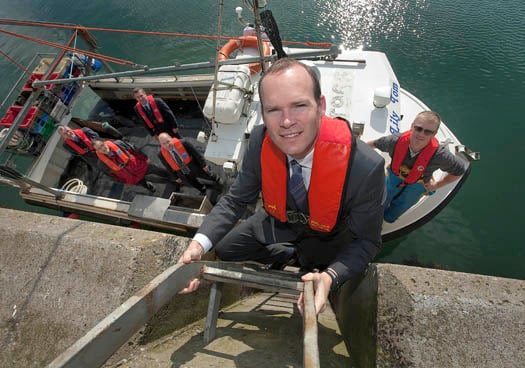
Marine Minister Simon Coveney TD
The appointment means Taoiseach Enda Kenny has kept good an election promise to reinstate the Marine department. A decade of lost opportunties has meant the sector has suffered through lack of infrastructure and coastline planning.
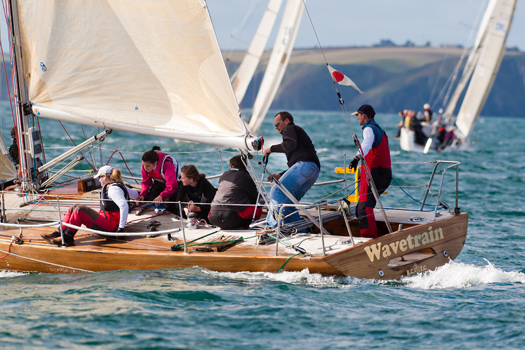
Simon Coveney at the helm of his yacht Wavetrain. Photo: Bob Bateman
"Simon is someone who understands the Sea as a sailor himself but also in his work as an MEP where he was involved in a number of major European maritime projects. This is a great opportuinty for the Marine. We look forward to working with him to develop this untapped resource." said David O'Brien of the Irish Marine Federation.
Simon was first elected to the Dáil in 1998 as one of Fine Gael's youngest TD's aged 26. He replaced his father Hugh Coveney TD following his untimely death.
Simon follows his father in to the post of Marine Minister. Hugh held the post in 1994.
Simon holds a B.Sc. in Agriculture and Land Management from Royal Agriculture College, Gloucestershire. He was also educated at Clongowes Wood College, County Kildare; University College Cork, and Gurteen Agricultural College, County Tipperary.
A keen fan of all competitive sport he has worked as a sailing instructor at his club Royal Cork Yacht Club in Crosshaven and been involved in many sailing regattas.
In 1997/8 he led the "Sail Chernobyl Project" which involved sailing a boat 30,000 miles around the world and raising €650,000 for charity.
In 2006 he contributed to RTE's series The Harbour and in a memorable quote, the Cork TD and former MEP said: "When somebody asks me the question, what's the one thing that's special about Cork?, I'd say the harbour."
Single Maritime Authority 'Essential for an Island People'
The new Government's plans to merge marine responsibilities into a single department has received a guarded welcome from Ireland's marine trade bodies.
In today's Irish Times, the Irish Marine Federation is quoted as saying a "single maritime authority is essential for an island people".
Federation of Irish Fishermen chairman Seán O'Donoghue also welcomed the merger plans, but not if it becomes a subset of a larger department.
Fergus Cahill, chairman of the Irish Offshore Operators' Association, which represents oil and gas companies, said the splitting-up of the Department of Marine in 2002 was a "disaster".
He welcomed the new programme's promise to promote offshore drilling and "streamline" the regulatory process for developing mineral resources.
Programme for Government will Reinstate Marine Department
It maybe the second last item on the programme for government issued by Enda Kenny and Eamon Gilmore yesterday but the indications are good that the marine sector will see a reinstated Department of the Marine. the Fine Gael and Labour coalition say 'marine responsibilities will be merged under one Department, for better co-ordination in policy delivery'. Here is the relevant excerpt:
Coastal communities, fisheries & marine environment
We will negotiate the best possible deal for fishermen in the review of the Common Fisheries Policy.
We will support the development of sustainable aquaculture and fish farms by streamlining the licensing process and reducing associated bureaucracy.
Marine responsibilities will be merged under one Department, for better co-ordination in policy delivery. We will develop an integrated marine and coastal planning process in order to maximise the potential of Ireland's coastline in fishing, aquaculture, ocean energy and tourism.
A Sea Fisheries Sustainability Impact Assessment, based on consultation with all major stakeholders, will be brought before the Dáil annually before EU fisheries negotiations commence.
We will replace criminal sanctions system for minor fisheries offences with administrative sanction system to bring Ireland into line with other European jurisdictions. Safety at sea and decent working conditions must underpin the development of the fisheries sector. We will explore the provision of an emergency towing vessel for the Coastguard.
Will Sail Training Be Restored?
I am glad to see that efforts are being made to restore the national sail training programme, but less sanguine about reposing any confidence in the present Government to give practical assistance.
I talked a few weeks ago with the Irish Sailing Association's Chief Executive about their involvement in moves to establish a new sail training organisation to replace Coiste an Asgard, which the Government abandoned. Harry Hermon told me that the ISA had been examining the possibilities of what could be done. They were providing a forum which has now led to the setting-up of a steering group aimed at establishing a new organisation, Sail Training Ireland.
Sail Training International which organises the Tall Ships Races has given support. The Tall Ships Race will start from Waterford Port next year and is due into Dublin in 2012.
Nigel Rowe, Chairman of the international body, has expressed confidence that the current moves will result in a plan to continue sail training in Ireland. Sail Training International has awarded a bursary to the emerging Irish organisation, providing financial support for young Irish sailors in the 2011 and 2012 races.
The ISA working group says it will make a formal launch of its plans in the next few weeks. At present it is putting together a feasibility study and a business plan which will be presented to the Government in the New Year.
While the ISA move is welcome, I wonder about the value of presenting a plan to the existing Government which destroyed sail training, abandoned Asgard II on the seabed off France and used the insurance compensation money for purposes other than sail training.
I understand that other groups, who may differ with the ISA approach, have been planning their own moves in sail training and that the ISA decided to establish its position in public first.
It also has to be noted that there was criticism of the former Coiste an Asgard committee which did not make any moves in public to oppose the Government closure, on financial grounds, of the sail training programme.
It would be regrettable if differences delayed positive developments, but a united approach, involving the widest possible support to the restoration of sail training would be best.
• This article is reprinted by permission of the EVENING ECHO newspaper, Cork, where Tom MacSweeney writes maritime columns twice weekly. Evening Echo website: www.eecho.ie


























